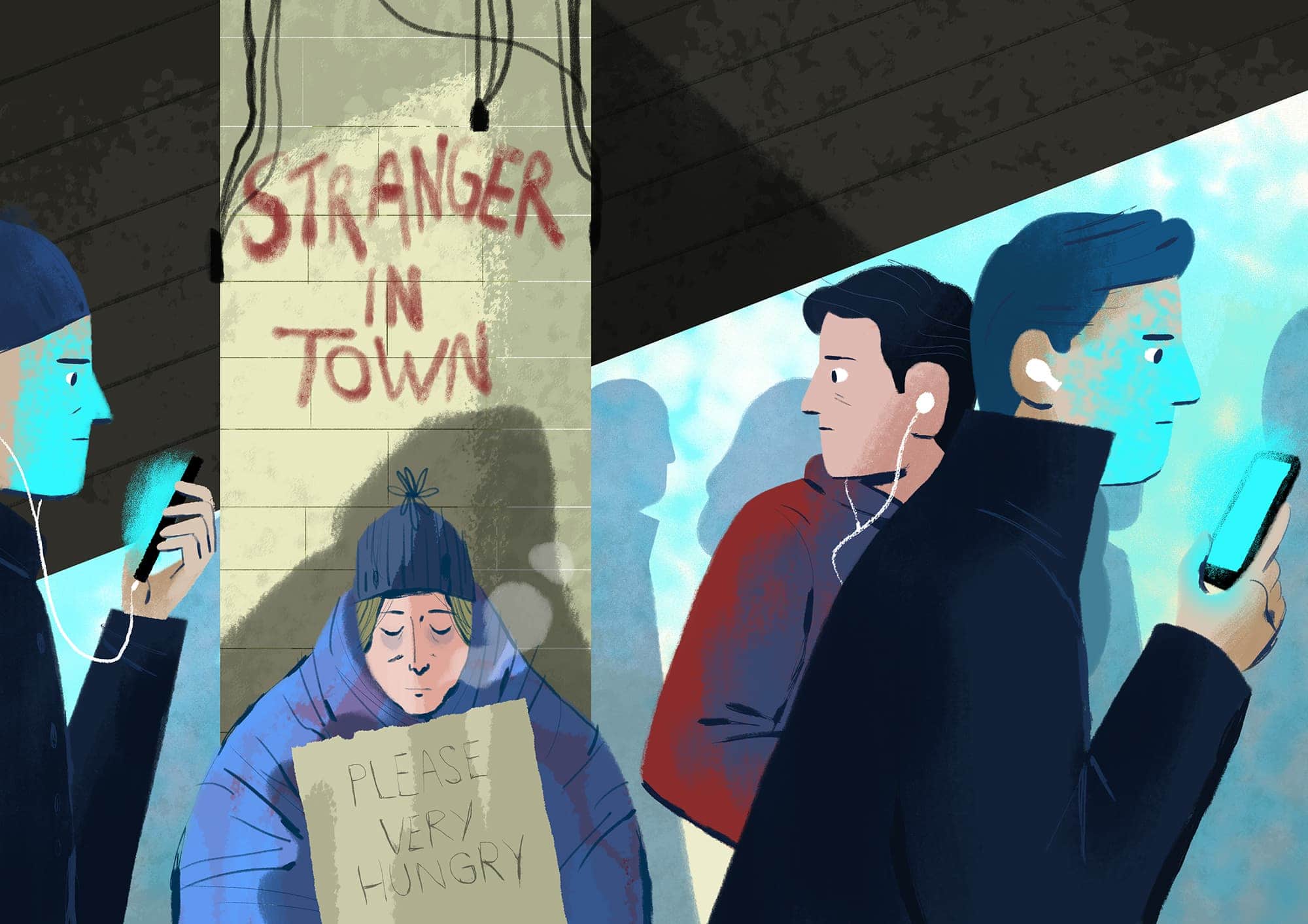

Illustration by Graham Corcoran
Each of us needs to be recognised as an individual. That makes us what we are. You see, it’s hard to tell sardines, one from the other. But we are all different, clinging in our own ways to the crazy spin of life. Just look at the nose on the chap sitting near you now. See what I mean.
But let’s travel back for a while. When I was young and God seemed higher in the sky than he does now, some of us spent Friday nights in a cinema, which, down the years, had been blessed with several names, all rather grand. It was, however, affectionately known to all as the Flea Pit.
You see, it’s hard to tell sardines, one from the other
A few yards down its street stood a ballroom made for hard-staring boys and pouting girls, where, on different nights, the Beatles and the Rolling Stones had performed on the trembling stage. For most of us then, though, the mirror was the only stage. This cinema, that in a flight of fancy has been described as a “picture palace”, often billed X-rated horror movies, which featured the blood-dripping fangs of vampires, Crosses, cloves of garlic, bats and fleeting glimpses of nipple on voluptuous vamps in flimsy negligees.
You were meant to be 16 to see these bold films. But if you lit a fag on stepping over the regally piled carpet, you passed the manager’s age test. Yet a few hours later we became 15 again, by not smoking, so we could ride for the children’s half-fare on the bus home. Often on these foggy, goose-pimpled nights, we’d visit the nearby chippie, passing an old tramp sitting in the shadows. He alerted all our senses – smell, sight and sound in that order. But he was always grateful for a bag of chips. Everyone in town knew him. He was a picture-book tramp in a bobble hat and dark greatcoat fastened at the waist with string.
Often on these foggy, goose-pimpled nights, we’d visit the nearby chippie, passing an old tramp sitting in the shadows
In those days of the 1960s, people knew the tramps in their towns. There were so few of them. They were individuals. And tall tales were told of them being war heroes, whose medals had tarnished in unsympathetic times – or artists, whose genius had not been recognised by a slate-souled public. On bitter nights, the police would offer them a hot meal and a comparatively comfy bed in a cell. Even so, they’d often choose to stay out, independent but frozen.
Now there are thousands of tramps all over the country, so it’s much harder to known them individually. They are just there like the lamp-posts, bins and the shutters on the shop windows. We call them beggars, rough sleepers, even vagrants. And people shake their heads and blame the Government while talking about the budgets for “mental health issues”.
Now there are thousands of tramps all over the country, so it’s much harder to known them individually
So your Stranger in Town, who was visiting an affluent suburb in north London, raised his collar against the cold and considered the changes in our ways and words, as we all do from time to time. Mist was in the air and fog in the eyes of commuters, panting a little after climbing the escalator, before striding with purpose from Finsbury Park tube station.
Occasionally, there would be some glad-handing and pats on the back – and those grinning nods of recognition made when the clock races. But even for those flashes of recognition, most had to peel their eyes off the screens on their mobile phones. And, like a mighty herd, they strode under the bridges that sheltered a village of rough sleepers – cigarettes glowing, their feet poking from puffy quilts, on which rested messages written on strips or corrugated cardboard.
But even for those flashes of recognition, most had to peel their eyes off the screens on their mobile phones
One said simply, “Please, very hungry”. And a few coins had been dropped in her old coffee beaker on the concrete floor. She prayed in thanks. Should we feel guilty was the question tormenting the minds of those, whose beds are sprung and whose rooms are centrally heated. But who has an answer?
You see, a few hundred yards from the village, beyond the shops, were some very expensive houses with cars to match. You could have bought a mansion for less in my town and still had change for a yacht. But people are drawn to London for many reasons and it becomes their home. It’s a magnet with a long pull.
Then, through the village under the dripping bridges, came a couple accompanied, on leads, by their two sausage dogs, a delightful pair, whose strutting and haughty turns of the head soon attracted rubs on the ears and endearments. “Oh, aren’t they cute, such lovely faces. What are their names?” Ah yes, names. The labels that make us individuals.
It’s always strange to be a Stranger in Town. On we go.




